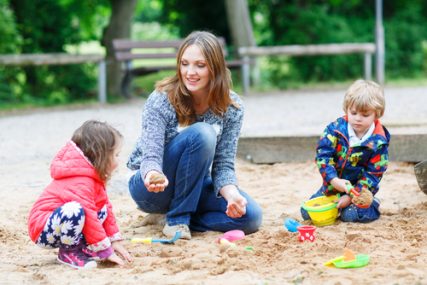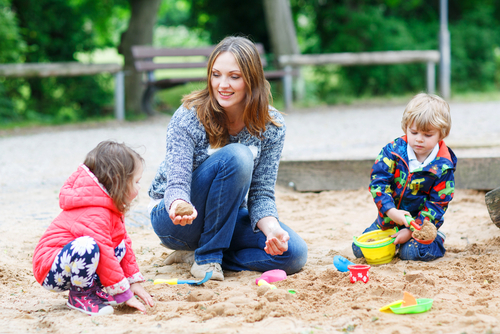 This weekend I met an older woman who, as a child in West Virginia, was deposited on a train once a summer to visit an uncle who lived in Cincinnati. Her parents would pin a note on her chest, in the manner of Paddington Bear, and dispatch her a couple hundred miles alone when she was as young as eight or nine.
This weekend I met an older woman who, as a child in West Virginia, was deposited on a train once a summer to visit an uncle who lived in Cincinnati. Her parents would pin a note on her chest, in the manner of Paddington Bear, and dispatch her a couple hundred miles alone when she was as young as eight or nine.
She had wonderful times.
That 1950s-era practice may be an extreme case of childhood independence, but even my generation enjoyed great freedom. When I was a kid in the 1970s and 1980s, I exited my door each morning to walk or bike wherever I was heading for the day. During the summer, that meant hanging around with the other kids in my neighborhood for hours at a stretch, only returning home for meals or when one of us had an injury. Sometimes our parents had little idea where we were—the library, the college swimming pool, a friend’s house. Our lives were our own.
I’m not sure when the world changed, but last month those changes reached a nadir of ridiculousness when the police began investigating a suburban Maryland family that had dared to permit their children to walk home from the park together without an adult.
When did we, as a culture, become so terrified of allowing children any independence at all?
The police who arrived at that family’s doorstep lectured the parents about it being a dangerous world—more dangerous, they felt, than the one they and I grew up in.
While I’m sure they see some terrible situations in their jobs, the fact is that they’re wrong, statistically. In terms of abductions and murders, children are safer now than they have ever been.
In fact, some of the ways they are not safe can be attributed in part to helicopter parenting, like the rising rates of children who die each year in car accidents — perhaps because we insist on ferrying them around like rajahs. That’s to say nothing of children who succumb to the growing epidemic of juvenile obesity because we’d rather have them “safe” at home than outside playing a twilight game of tag.
And meanwhile, both children and their parents are obsessed as never before with fantasy fiction. We devour stories about young teenagers who save the world from evil empires like Panem or splintered societies as in Divergent. In these tales, sixteen-year-olds face life-and-death battles in which everything hinges upon their proven ability to act like adults.
(Actually, scratch that; most of the adults in these novels are perfectly useless. The young characters are expected to be superheroes.)
Fantasy fiction with juvenile heroes began taking off in the late 1990s, not long after our profound cultural shift in childhood independence. In 1971, 80% of third-grade children in the U.K. walked to school; by the 1990s it was down to 9% (and would likely be even lower today).
While we encourage our children to read about eleven-year-old wizards who navigate whole new worlds almost entirely on their own, we don’t allow them to so much as cross the street without our standing by to wipe their noses.
Some people tend to dismiss fantasy fiction as mere escapism, but it’s hazardous to ignore the deeper reasons children are attracted to it. Fantasy serves a compensatory function in our lives. It provides a safe space in which we can be the hero, save the prince/ss, and slay the dragon.
And it takes on special resonance when parents so tightly control their children’s freedom that fantasy fiction becomes the lone venue in which they, not their parents, are required to take charge of their lives.






